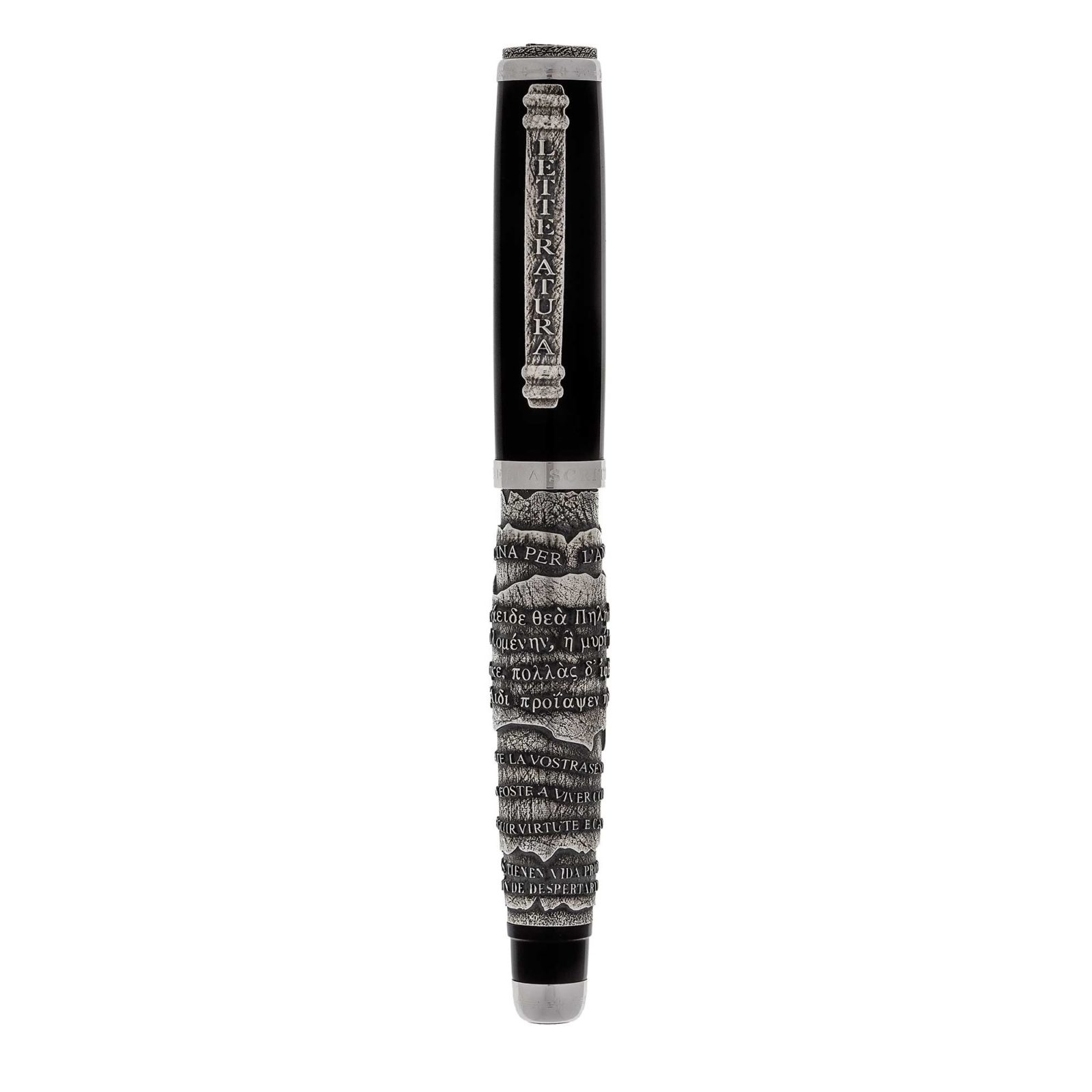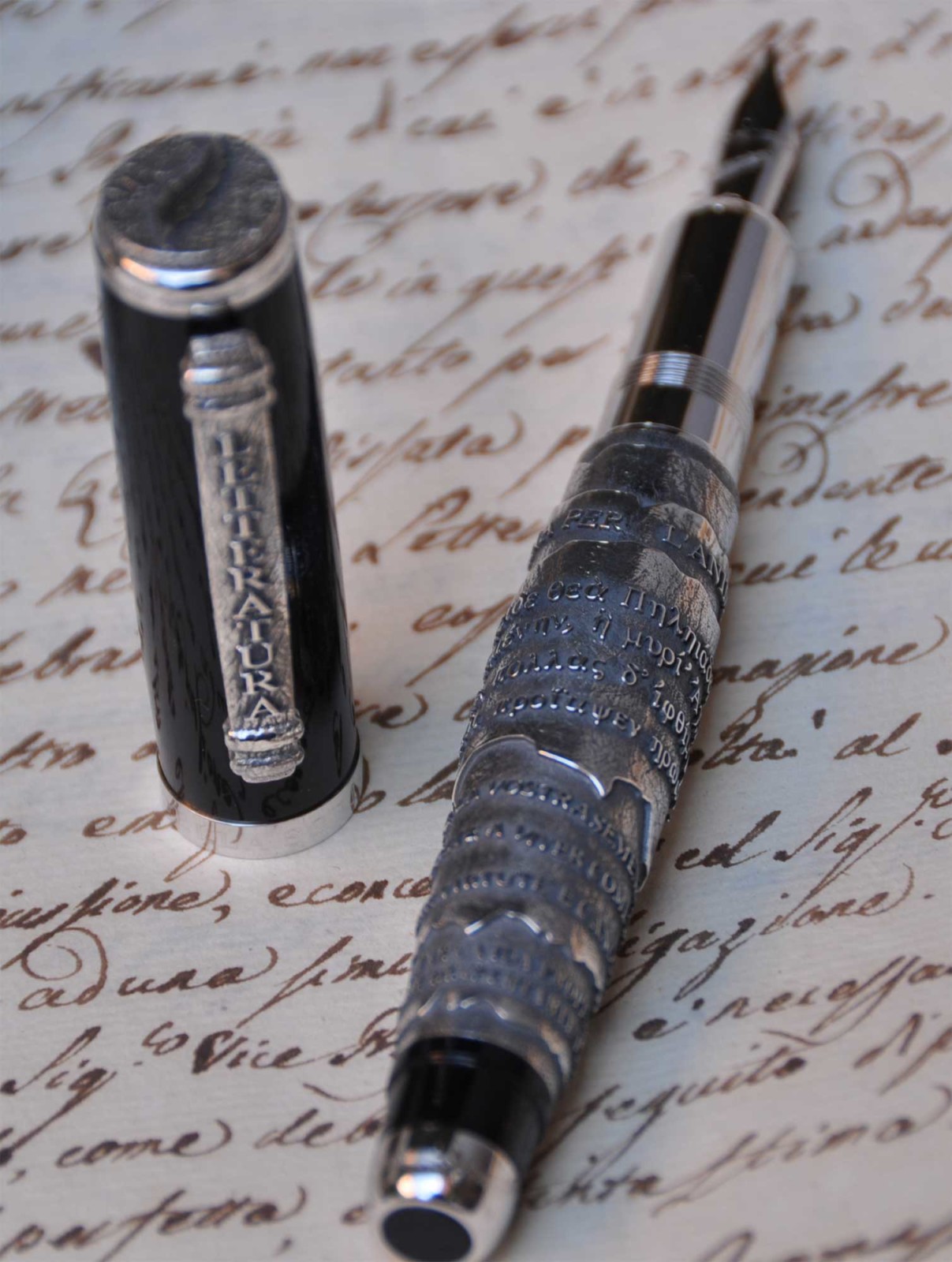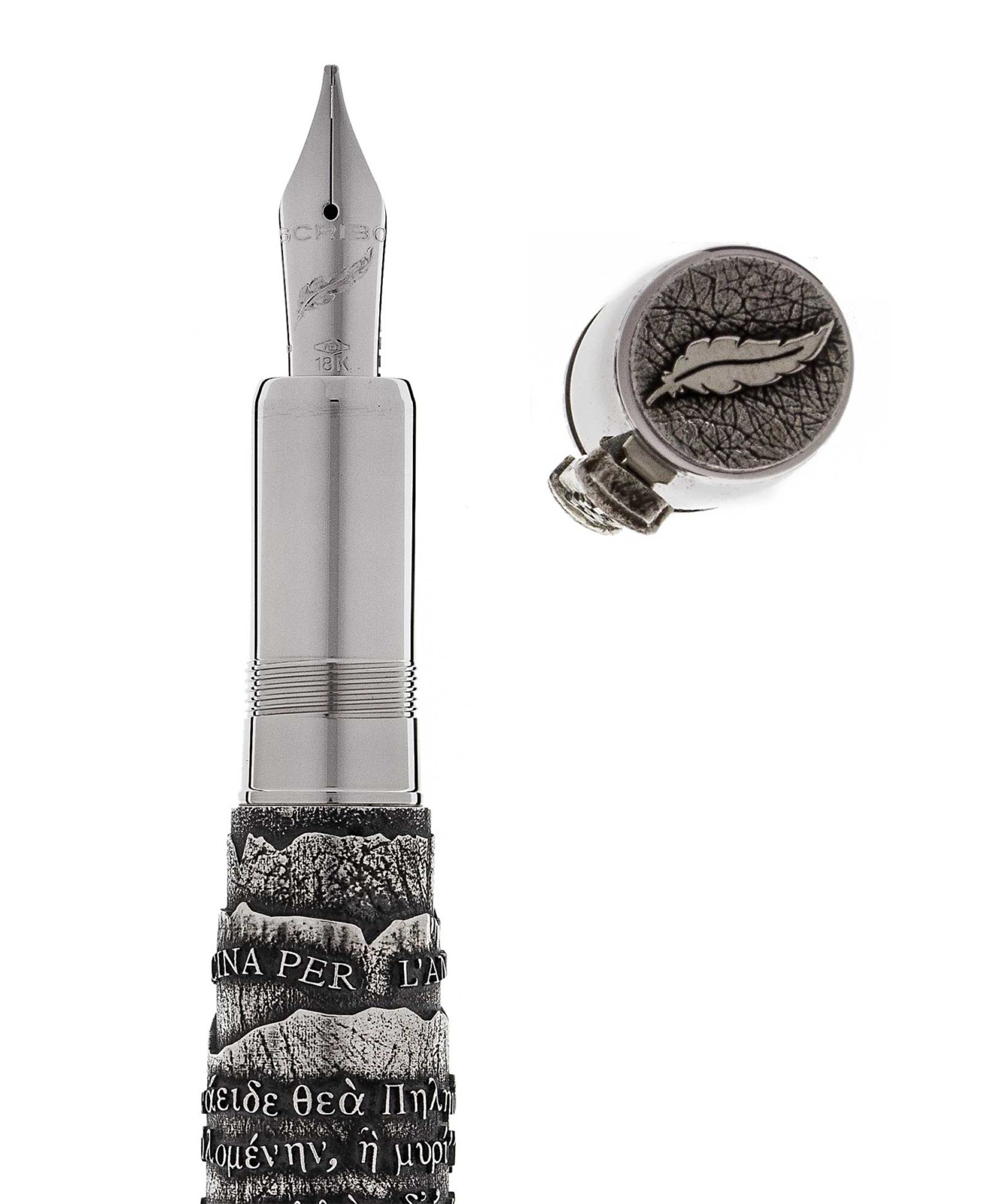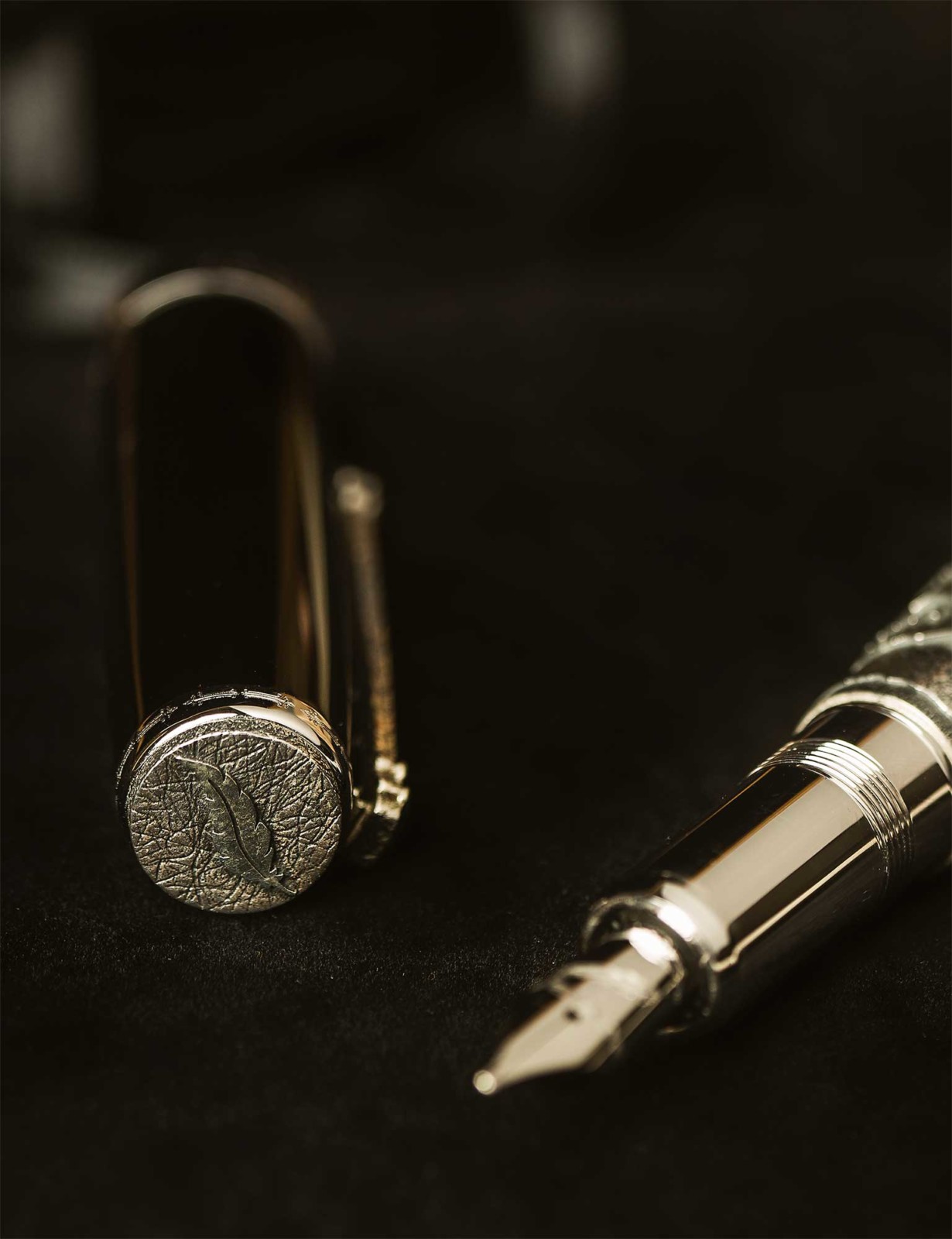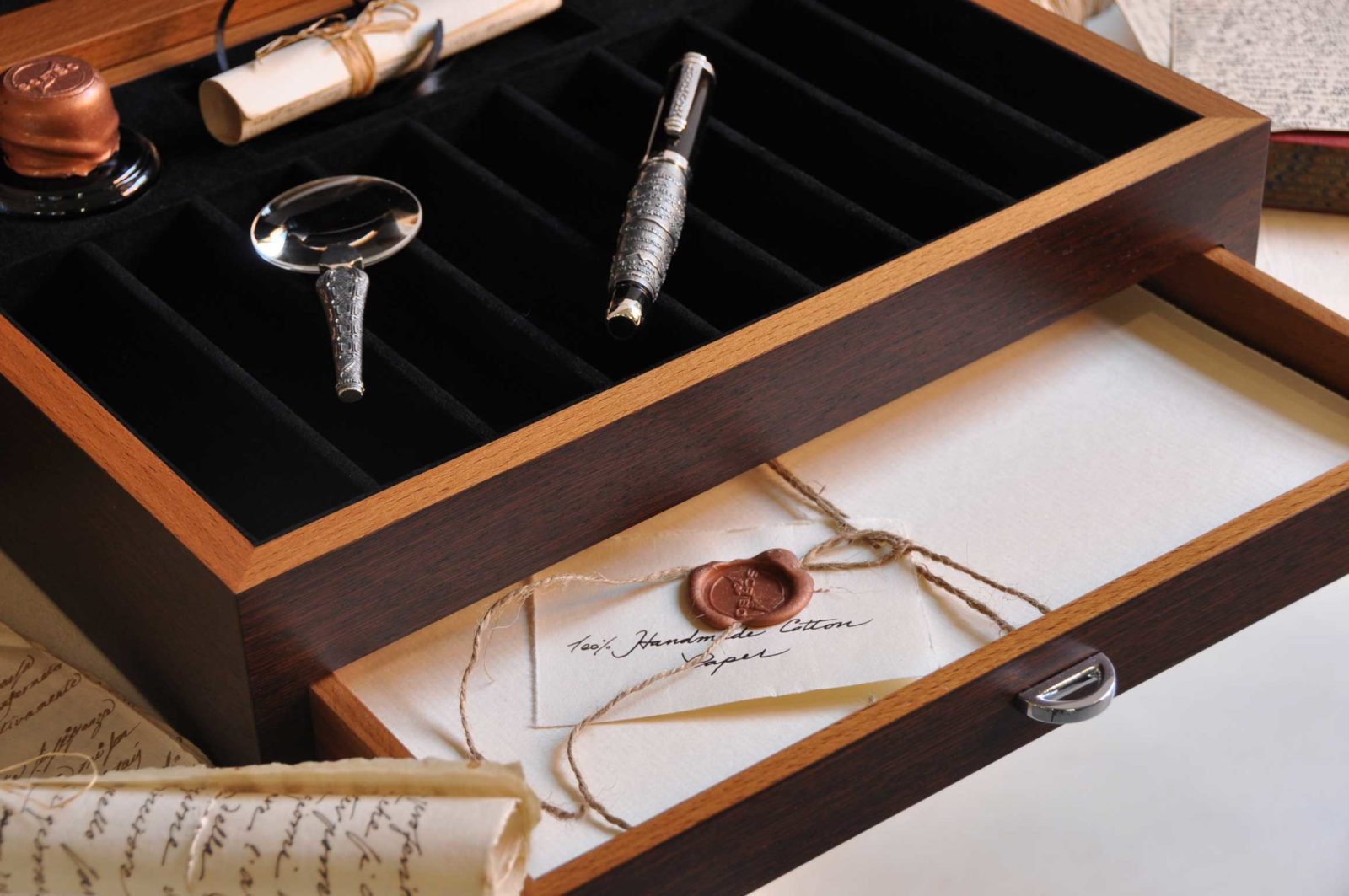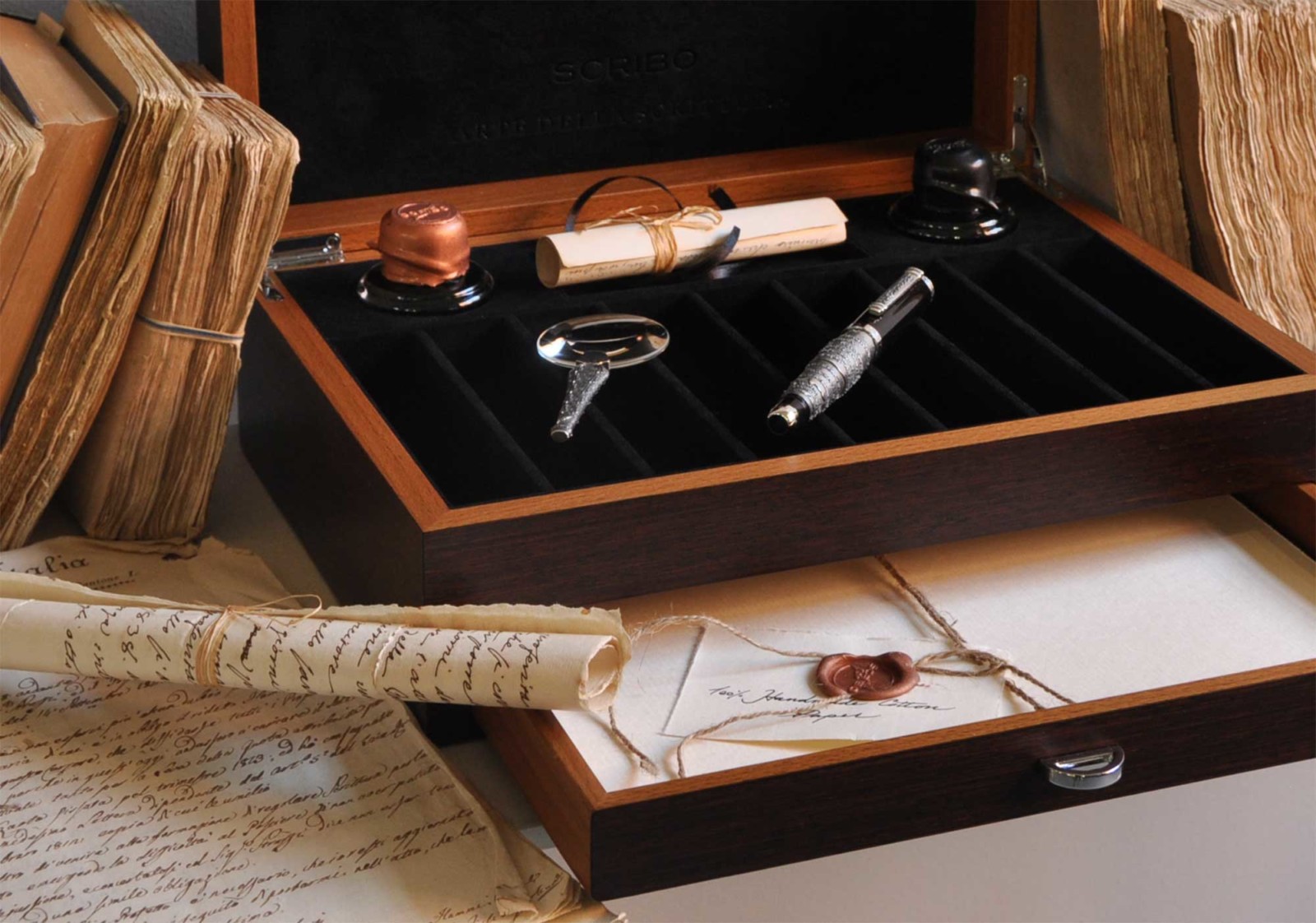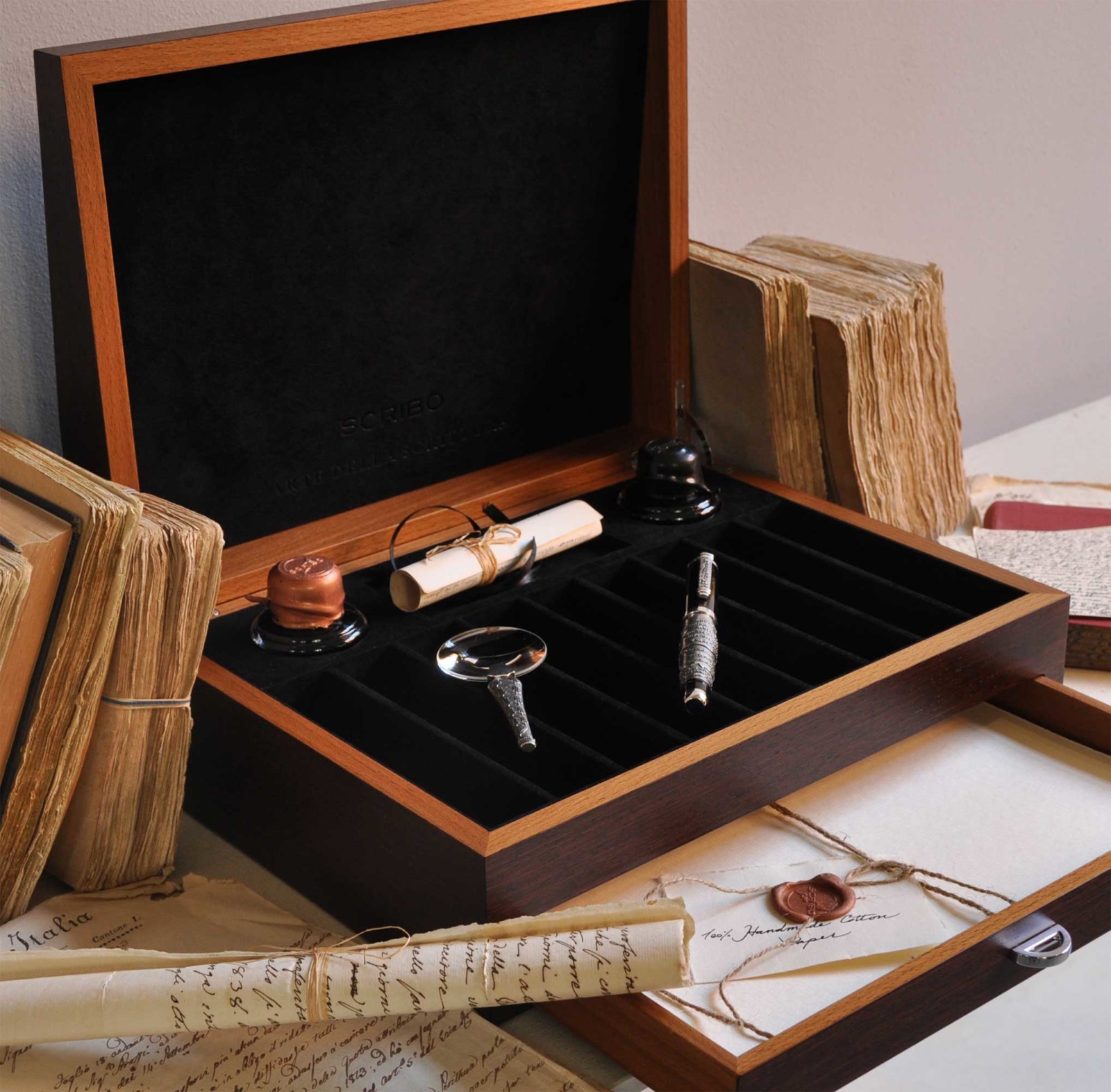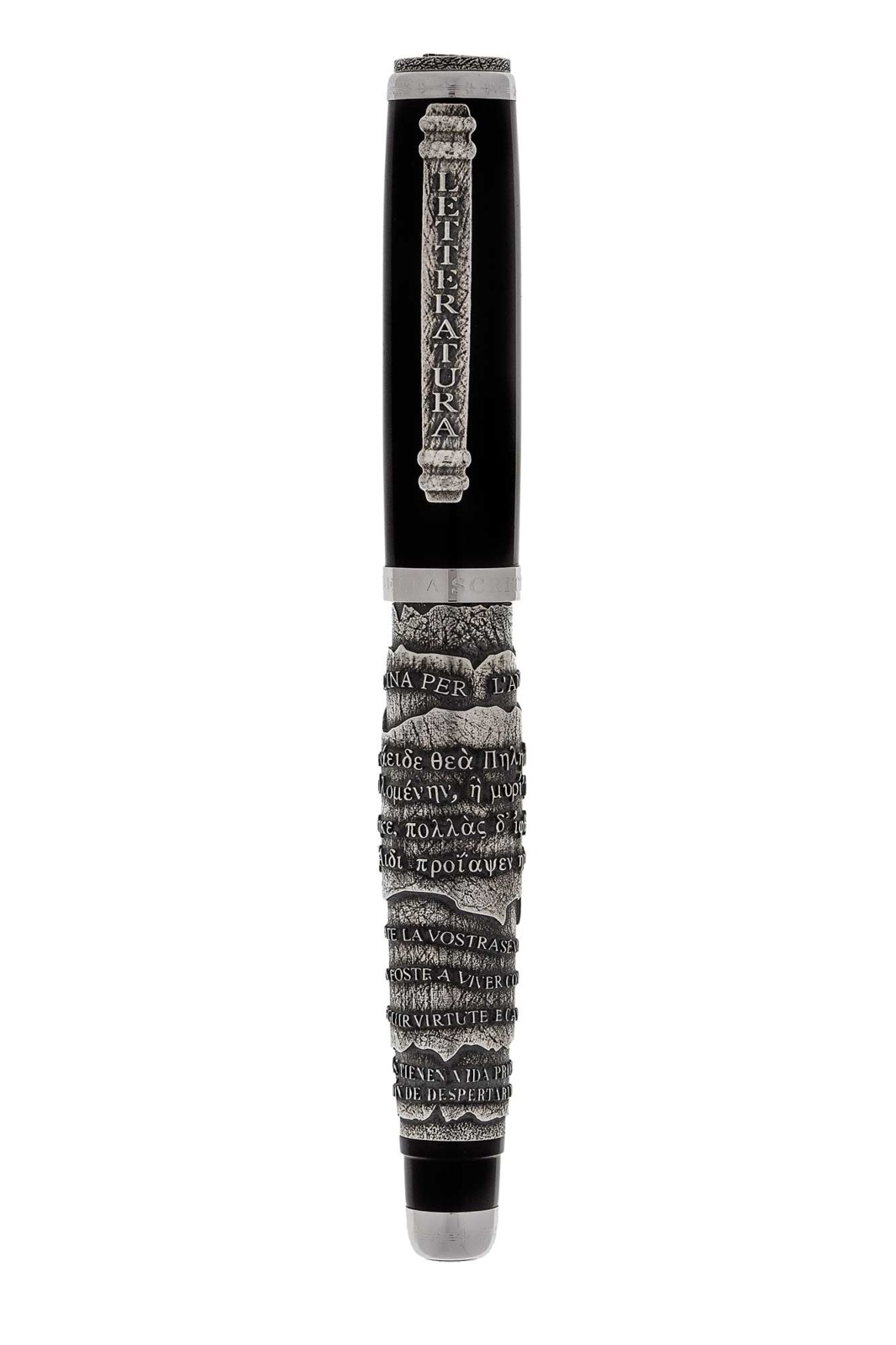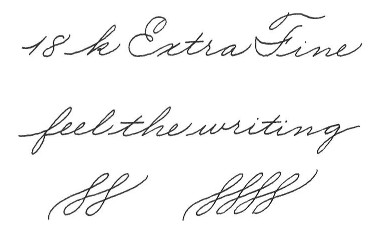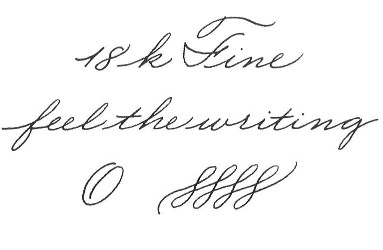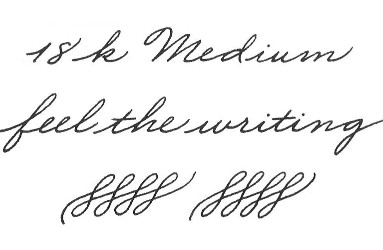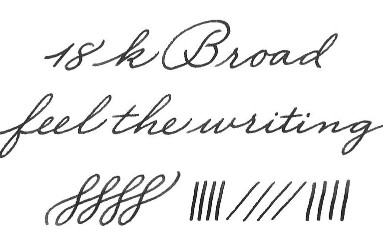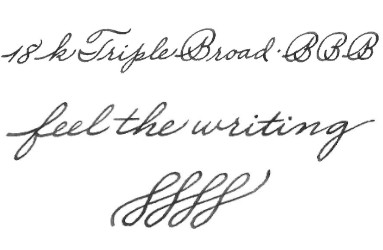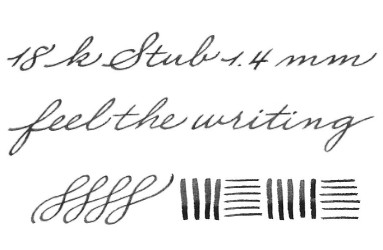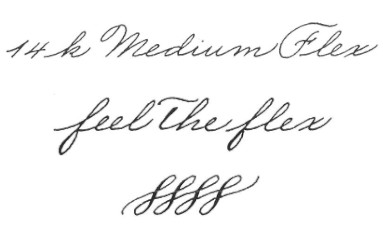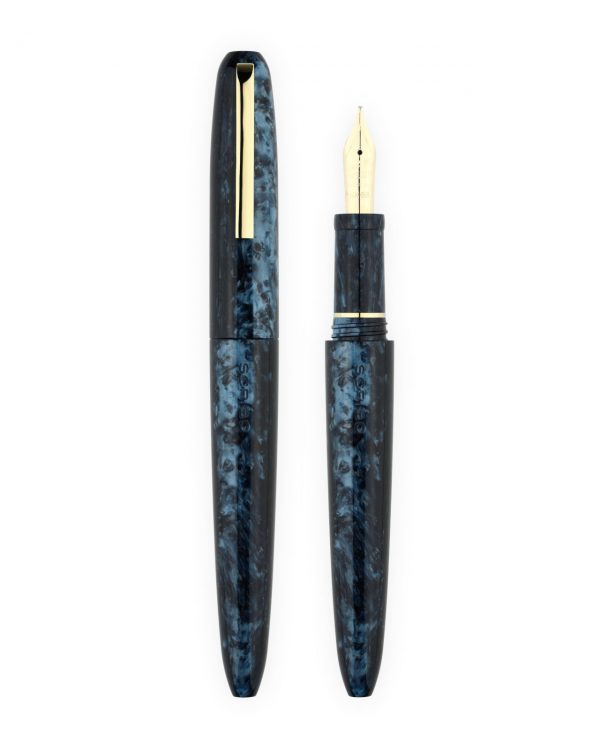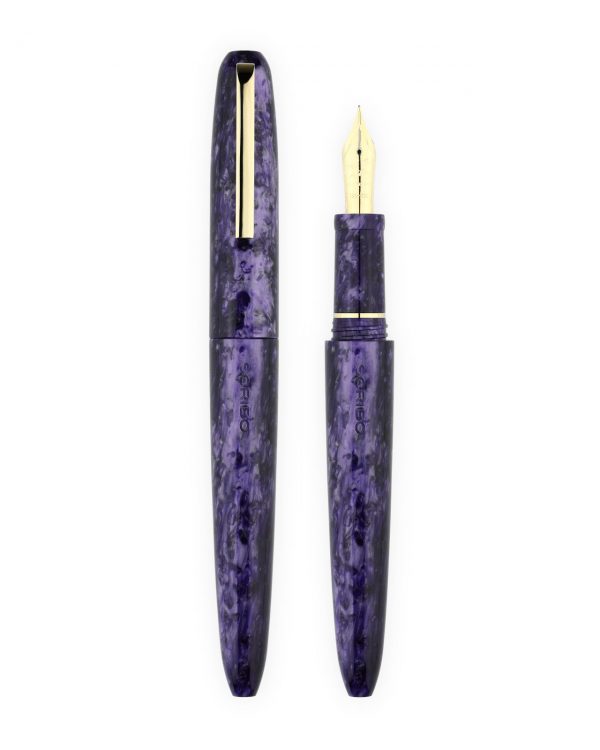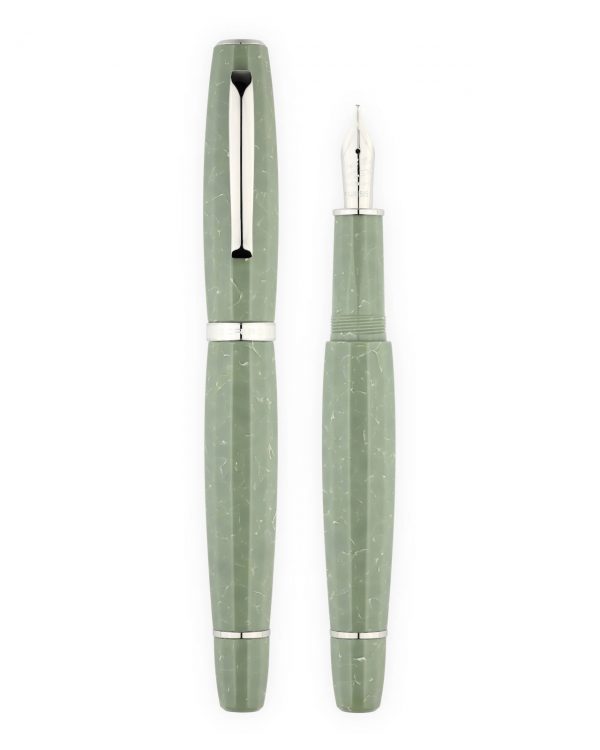Description
THE ART OF WRITING
Through this art writing tool, the written word, a prodigious instrument that makes us so human, becomes unique through time.
While the language is made by sounds, the writing is made by signs thanks to a tool which is used to communicate and to leave proofs on paper. This tool becomes an instrument to write the history of human being, not only to give interpretations to the world but also to enter the mystery of the mind.
In the function of writing words, a fountain pen connects emotions to reason.
On the body of the pen, as a canvas of present time, the voice of Homer, Dante and García Márquez come to life, as engraved on parchment.
Through centuries the world has seen the evolution of literature, as expression of human thought, according to human ideals and its changes. Thanks to writing, we have a universal memory; from ancient Greece, through the Middle Ages in Italy, until the magical realism in Latin America.
During the ancient times, mankind was singing to leave a record of his life, during Middle Ages he was focused on the path to redemption, moral and religious, and the man of our times, as in a hypothetical renaissance, gets excited in front of the beauty and gets inspired singing and dreaming.
Who has not held a pen in his hands feeling the power of time and the need to use it?
An ancient quill completes the perfect triad, along with paper and ink, and represents a loyal witness of human feelings. Homer, Dante, and García Márquez: universal heritage belonging to mankind. Homer with the quill, Dante with paper and García Márquez with ink.
This is the strength to transcend the human experience, whose ideography records the history of a country in the Homer epic, passions of his time and connection between poetry and fiction in the deep Dante’s voice, a fantastic dance and his magic realism in García Márquez literature.
Before the arrival of writing, the epic (the poetry of life), was remembered by oral tradition. Homer, with his “Iliad” and “Odyssey” had to wait nine centuries to link his name to those literary masterpieces, thanks to a fountain pen. It was prophesied: “It will be immortal forever and will not know old age.” Homer became eternal thanks to his writings.
“Sing Goddess, Achilles’ rage
black and murderous, that cost the Greeks
incalculable pain, pitched countless souls of heroes into Hades’ dark”
(translation by Mr. Stanley Lombardo, Indianapolis, Hackett Edition, 1997)
it is perhaps the most famous prologue of all history of literature. In a few sentences it introduces the entire contents of the Homeric epics and the conquest of Troy.
Inferno, Purgatory and Paradise. Dante, in his world literature masterpiece “Divine Comedy”, written in the Florentine vernacular (the language that gave rise to modern Italian), summarizes the over centuries large accumulated human knowledge. Dante descends into Inferno and, through the imaginary journey that brings him to the three realms of dead, he arrives at Paradise and sees the Trinity.
“Bethink you of the seed whence ye have sprung;
for ye were not created to lead the life of stupid animals,
but manliness and knowledge to pursue”
(translation by Mr. Courtney Langdon, London, Cambridge Harvard University Press, 1918)
It is in the Inferno, Canto XXVI, lines 118-120, that Dante, through Ulysse’s “little speech” to his crew, urges “the man to dedicate its intellect to arts, to pursue knowledge rather than trying to prevaricate against each other using the brute power, like animals do”.
Although Ulysse’s wandering, driven by his thirst for knowledge and ardor to know the human contrasting vices and virtues and defying his God’s will, puts the Homeric hero into Hell, his words certainly represent the highest moral redemption research.
Gabriel García Márquez in his “One Hundred Years of Solitude”, explores reality through its own existing magic and gives us a seductive mixture of fantasy and cruelty.
“I can sit all day telling stories,” says Gabo, “the problem is that they want me to write them.” This is the way García Márquez became a writer, letting him win the Literature Nobel prize. His words remain engraved in everybody’s memory. His written words have turned dream into reality.
It almost seems that his quote “things have their own lives, it is simply a matter of waking up their souls” would refer to the writing instrument, able to transpose our own soul into words.
Is it there by chance any other way to leave a record of human thoughts and feelings than through a fountain pen that writes on a piece of smooth paper?
THE LIMITED EDITION
Wrapped and protected in a wooden box, entirely handmade, the “Art of Writing” Limited Edition is a piece of high italian craftsmanship, refinished in every detail and designed to provide the best hand-writing experience.
The piston filling fountain pen is made of 925 ‰ antique silver and precious resin, hand-turned from solid bar.
The barrel, central element of the fountain pen, is made with the ancient recipe of hand-casting, typical of the goldsmith, and represents a wounded on itself parchment, as a tribute to the art of literature.
At the top of the parchment it stands the ancient engraving located above the door of Thebes Library, founded in the fifteenth century b.C.: “Medicina per l’anima” (medicine for the soul). Three simple words that tell an absolute truth: libraries are pharmacies for humanity.
Immediately below “Medicina per l’anima” (medicine for soul), here there are, in high relief, the three Homer, Dante and Gabriel Garcia Marquez quotations reported in the original language: ancient greek for Homer, vulgar Florentine for Dante and modern Spanish for Marquez.
An elegant handmade magnifying glass is included to closely admire the hard-chasing work made on the three writers quotations.
The cap, slightly tapered at the top, has a minimalist and elegant shape. The clip, which is also made by hand-casting, represents the silhouette of an ancient book shoulder, ideally preserved in the oldest libraries. Eleven letters, also handmade by the old hand-casting process, outstand from the clip and compose the “Letteratura” (Literature) word.
On top of the Limited Edition the quill seal appears, as a timeless handwriting icon.
Two bottles of water-based ink, in black and sepia colors, are ready to write over 20 twenty sheets of handmade cotton fiber paper, completed by same quality envelopes, well preserved in a dedicated drawer of the Collector’s packaging.
The Collector’s packaging is completed by a 9 pens-holder tray.
The “Art of Writing” collection is made by 100 numbered and limited piston filling fountain pens with 18-carat gold nib available in Extra Fine, Fine, Medium and Broad sizes. The extra flexible 14carats nibs are also available on request in the same sizes. And 100 numbered and limited pieces are also available in the Roller Ball model.
In addition, a very limited and numbered production, made of 18 carat solid gold, is available in 10 exclusive pieces both in the piston filling fountain pen and in the roller ball models.
The “Art of Writing” collection is therefore a tribute to the art of literature, dedicated to anyone who wants to feel the best hand-writing experience.

